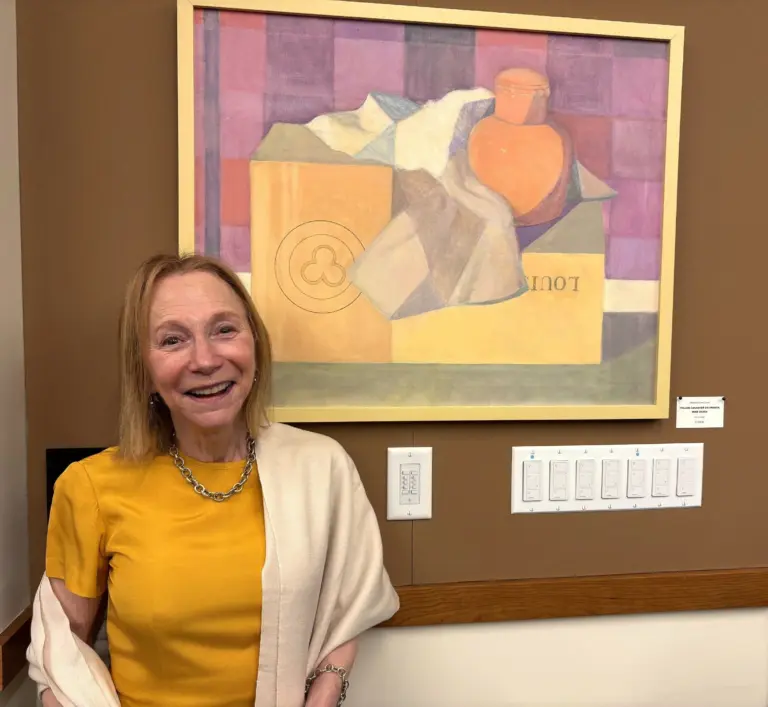By Marek Zabriskie
The English author Dorothy Sayers once called the Christian story “the greatest drama ever staged.” She proved that it was dramatic by writing her own series of plays which were produced on the BBC about the life of Christ.
A record-breaking radio audience listened to that series in 1941. The story still excites people. Just look at this crowds in every church on Easter morning. Christ Church may have set a new record at our 9 a.m. service.
Yet, the resurrection is like Jesus’ other miracles. Jesus never did anything that hadn’t happened before. Yes, he stilled the storm on the Sea of Galilee, but every storm is eventually stilled.
Yes, Jesus healed people, but many people eventually get better. Yes, he turned water into wine, but some water eventually gets transformed into wine.
The miraculous thing about what Jesus did is that he did it immediately – in a flash. The miracle was not in the event but in the timing.
In the same way, resurrection is not strange or unknown to us. It happens over time. The unusual thing about Easter is that it occurred in a flash, and Jesus came back to life. But to believe it, we need move beyond logic and reason in order to live above “see level” and let our faith carry us further on our pilgrimage.
A number of years ago a young college professor of philosophy named Raymond Moody kept discovering accounts of people who had survived near death experiences. He was so intrigued by this and by the common features of these stories that he began to collect them and later published his findings in a best-selling book called “Life After Life.”
Moody wrote that folks “on the edge” between this world and the next often described going through a cave or a dark tunnel and emerging into a place bathed in light. They were often greeted by family members who had already died, and they were welcomed and told not to be afraid. Everything was inviting and hospitable.
But then they were told that it was not time for them to remain and so they returned to their earthly life. Almost all of them report having had a genuine reluctance upon leaving this place of paradise. And the lasting effect of their experiences was to diminish their fear of dying and increase their anticipation of the life after life.
I remember hearing a story like this while I was doing my chaplaincy training at the Dartmouth Medical Hospital in Hanover, New Hampshire. I spent a summer there being trained to visit hospital patients, to put them at ease, listen to their fears and concerns and stories about their family, their religious journey, and whether or not they felt close to God.
One day, I walked into a man’s room and introduced myself as the summer chaplain. He invited me to sit down and talk with him. I saw that the tips of all of his fingers were jet black, like pieces of coal.
Then he said, “They operated on me a few weeks ago, and they told me that I died on the operating table. For several weeks after the operation, my hands were completely black. They’re much better now.
While they were operating on me, I saw myself looking down on the operating table and heard someone say, ‘We’re losing him! He has no vital signs,’ and I could see them trying to save me.”
“I was a Navy Seal in Vietnam, and suddenly, I saw the faces of all of my soldier friends who had died over there and family members who had died as well. We were talking, and then I heard a voice say, ‘Do you want to come forward or do you want to continue living?’”
“And I said, ‘I’m not ready to die.’ And that was it. When the doctors saw me after the operation, they said, ‘You died on the operating table, and you came back to life. We don’t know what happened.’”
I’ve heard a number of stories like that. I trust that resurrection is for real. There’s something beyond this life, and it is very good. We will be reunited with those whom we have loved and lost. I trust what the Bible says about this, and I trust the stories of life after life. So, I don’t doubt that someone wonderful is in store for each follower of Jesus when this life ends.
Let me share a story. An elderly woman had a serious illness and knew that she had only a short time to live. So, she asked her parish priest to come visit and help her plan her funeral. They selected hymns and chose lessons.
Then she told the priest that she wanted to be buried in her favorite blue dress with the family Bible tucked by her side in the casket. As the priest got up to leave, she said, “One more thing. I want a fork placed in my right hand in the casket.”
The priest looked puzzled and asked, “Why would you want a fork?” “I knew that you would ask, and so will others who come to my service. So, tell them this. Every time that I attended a church dinner and after the main course was over, someone would remove our plates and they would always say to me, ‘Keep your fork’, and I knew that it was because something better was coming.
It wouldn’t be Jell-O or pudding. It was going to be cake or pie – something substantial and wonderful. So, I want the fork in my hand, and when people see it, they will ask you, ‘Why is there a fork?,’ you can tell them that it is because I believe that something better is coming!”
So, keep your fork. Live with hope. Trust the promise. Let your love be rich and deep. Let your thinking be clear and your religion be pure and devoted to Jesus, who rose from the dead to assure us that something better is coming.
The Rev. Marek Zabriskie is Rector of Christ Church Greenwich.




